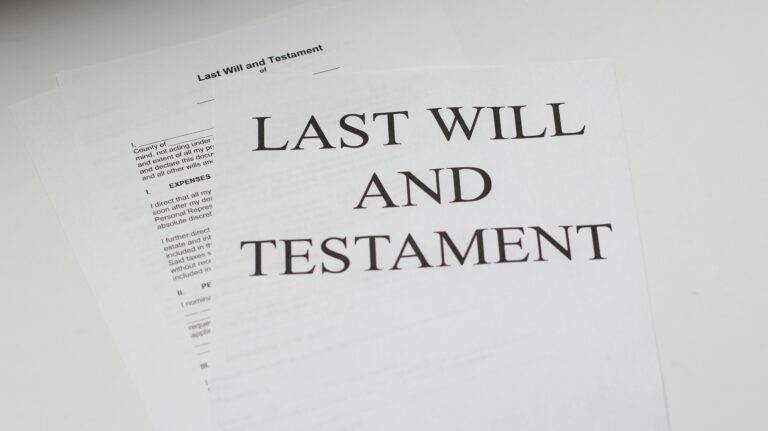
Estate planning is a crucial aspect of financial management, aiming to ensure the orderly transfer of assets upon one's passing. A key component in this process is the use of a pour-over will. This article delves into what pour-over wills are, how they work in conjunction with trusts, particularly revocable trusts and their importance in an effective estate plan.
What Is a Pour-Over Will?
A pour-over will is a specialized estate planning tool that ensures any assets not already included in a trust are transferred into it upon your death. Unlike a traditional will, a pour-over will directs your personal assets to a pre-established trust, typically a revocable living trust. This process ensures that assets not transferred into your trust during your lifetime are eventually included, providing a comprehensive approach to estate management.
The Relationship between Pour-Over Wills and Trusts
Trusts are fundamental in estate planning, acting as legal entities to manage assets for beneficiaries. Using a pour-over will is particularly synergistic with a revocable trust, where the trust acts as the beneficiary of the will. Upon your death, the pour-over will transfers any remaining personal assets into your trust by going through probate. This seamless transition maintains the integrity of your estate plan, ensuring that all assets are distributed according to your wishes.
Why Choose a Pour-Over Will?
Opting for a pour-over will in your estate plan offers several benefits. It provides a safety net, ensuring that all assets, even those acquired shortly before passing or inadvertently left out of the trust, become trust assets upon your death. This process helps make sure assets are distributed according to the terms of the trust and not by other means which may cause issues.
How Does a Pour-Over Will Work with a Living Trust?
A living trust, often a revocable living trust, is a key player in conjunction with a pour-over will. Upon your passing, the pour-over will directs any assets outside the trust to be transferred into it. This means that assets you did not fund into the trust during your lifetime are transferred into your living trust at the time of your death via the probate process. The trustee then manages and distributes these assets according to the trust's terms.
Understanding the Probate Process with Pour-Over Wills
The probate process, the legal procedure through which a will is validated, can be lengthy and public. Pour-over wills, however, offer a streamlined approach. While the pour-over will itself must go through probate, the assets it transfers to the trust are then distributed privately, according to the trust's instructions. This method can potentially reduce the scope and complexity of the probate process.
Pour-Over Will Examples: Practical Scenarios
Consider an estate where most assets are in a revocable trust, with a few personal assets are outside the trust at the time of passing. A pour-over will ensures that these assets are transferred into the trust. This is particularly useful in scenarios where assets are acquired close to the time of your passing or if certain assets are inadvertently left outside the trust.
Revocable vs. Irrevocable Trusts in Pour-Over Wills
While pour-over wills commonly work with revocable trusts, they can also be paired with irrevocable trusts. The key difference is flexibility and control. Revocable trusts allow you to retain control and make changes during your lifetime, while irrevocable trusts do not (with some caveats). However, irrevocable trusts offer potential estate tax benefits and added protection from creditors.
Pour-Over Wills: A Safety Net for Your Estate Plan
Pour-over wills act as a safety net, ensuring that no asset is left without direction upon your death. They provide peace of mind that all your assets, even those not placed in a trust during your lifetime, will be handled according to your overall estate plan. This comprehensive coverage ensures that your estate plan functions as intended.
Common Misconceptions and Challenges with Pour-Over Wills
One common misconception is that pour-over wills completely avoid probate. While they simplify the process, the will itself still goes through probate. Estate planning laws also vary from state to state, so it's important to consult with an estate planning attorney to understand how a pour-over will works according to state law.
Is a Pour-Over Will Right for You?
In conclusion, pour-over wills are an effective tool in estate planning, particularly when used with a trust. They ensure that all your assets, regardless of when they are acquired, are eventually placed under the trust's terms, thus streamlining the estate management process.
Key Takeaways
- Comprehensive Coverage: Pour-over wills ensure that all assets, even those acquired late or missed, are included in your estate plan.
- Probate Process: While pour-over wills must go through probate, they simplify and streamline the process for assets transferred to a trust.
- Flexibility with Trusts: Pour-over wills work effectively with both revocable and irrevocable trusts, each offering different benefits.
- State Laws Vary: Understanding how pour-over wills are treated under your specific state's probate law is crucial.
- Consult a Professional: Always engage with an estate planning lawyer to tailor your estate plan to your unique needs, including the decision to use a pour-over will.
Pour-over wills can be a pivotal part of a well-structured estate plan, offering flexibility, safety and a comprehensive approach to managing your assets.
Ready to take the next step in securing your legacy and ensuring your estate is managed according to your wishes? Our experienced estate planning attorneys will guide you through the process, tailoring a plan that suits your unique needs and includes the strategic use of pour-over wills. Secure peace of mind for yourself and your loved ones. Contact us now to schedule your personalized estate planning session.
